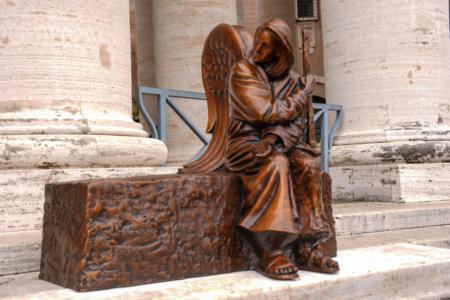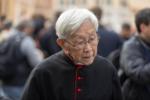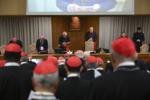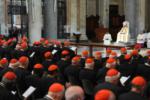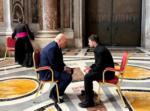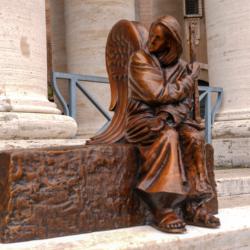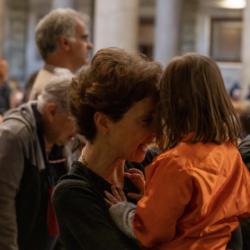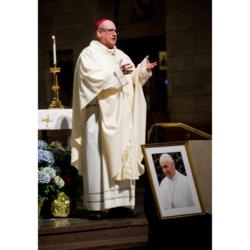Archbishop O’Malley: Feminism
Being Archbishop of Boston is like living in a fishbowl made out of magnifying glass. Of late, some misunderstandings have come about as a result of my desire to follow the Church’s rubrics for the washing of feet on Holy Thursday and because of the exegesis of a single phrase in a homily in which I mention feminism as one of the influences on baby boomers.
Feminism is a very elastic term, and I did not define it or try to categorize it. Other influences I mentioned were obviously negative, and so my comment was construed as an attack on feminism.
If someone were to ask me about feminism, I would say that there is feminism which is a Christian imperative and invokes promoting the rights and prerogatives of women, such as equal pay for equal work. The Holy Father has often spoken of Christian feminism, and thank God we have many noble examples of Christian feminists in our Church. Two such women who have had a profound influence on my life are Dorothy Day and Blessed Mother Teresa.
I am also very proud of the fact that in my years as a priest a major part of my ministry has been promoting the rights and welfare of women. Despite our obvious differences, I even co-chaired a government committee with Gloria Steinem, with the task of studying wages of domestic workers and recommending minimum wage increases. The television program 20/20 dedicated a show to the underground railroad I ran for many years for battered and exploited women.
Twenty years ago when I became a bishop, I was one of the first bishops to name a woman religious as my chancellor and later in Palm Beach I had a married woman as chancellor. It has been my good fortune always to work closely with very strong women whose gifts have enriched my life and ministry.
I have always defended the liturgical roles of women, and routinely there are women lectors, extraordinary ministers of Holy Communion and altar girls at my liturgies. But those who know me know that I take the Church’s liturgical directives most seriously. Consequently, for the last 34 years I have washed the feet of 12 men on Holy Thursday who represent the Twelve Apostles. It has never been an issue with my parishes. Different people have different preferences, but all have respected my wish to follow the rubric. The liturgy is a teacher of our doctrine and should not be tampered with.
This year the fact that “The DaVinci Code” has been number one on the best sellers’ list for the last 56 weeks (and soon to be made a Hollywood movie) should give us some cause for reflection. “The DaVinci Code” maintains that Mary Magdalene sat next to Jesus at the Last Supper, that they were “joined at the hip,” that they later got married, had children and together founded one of the French dynasties and foisted Christianity on the world. In light of that rather confused portrayal of the Last Supper in the popular culture, the more accurate representation of the 12 Apostles as men makes preeminent sense.
It is of concern that some people seem determined to make our liturgical services a political battleground. The Eucharist and Holy Week services are the most sacred things we have. They are meant to stand as a focal point of unity among believers. One way we safeguard unity is by obediently following the rubrics. This often means a sacrifice for both traditional as well as progressive Catholics who have different preferences. We must all be willing to make some sacrifices for the sake of unity and to avoid making the liturgy a battleground. During our “ad limina” visit to Rome scheduled for August of this year, I will raise the question of the foot washing ceremony for a clarification.
I am sorry if this controversy has been upsetting to our Catholic women and I hope that these reflections will help you to understand that I more than value the gifts and contributions that women make to our Church and to my own faith life.
